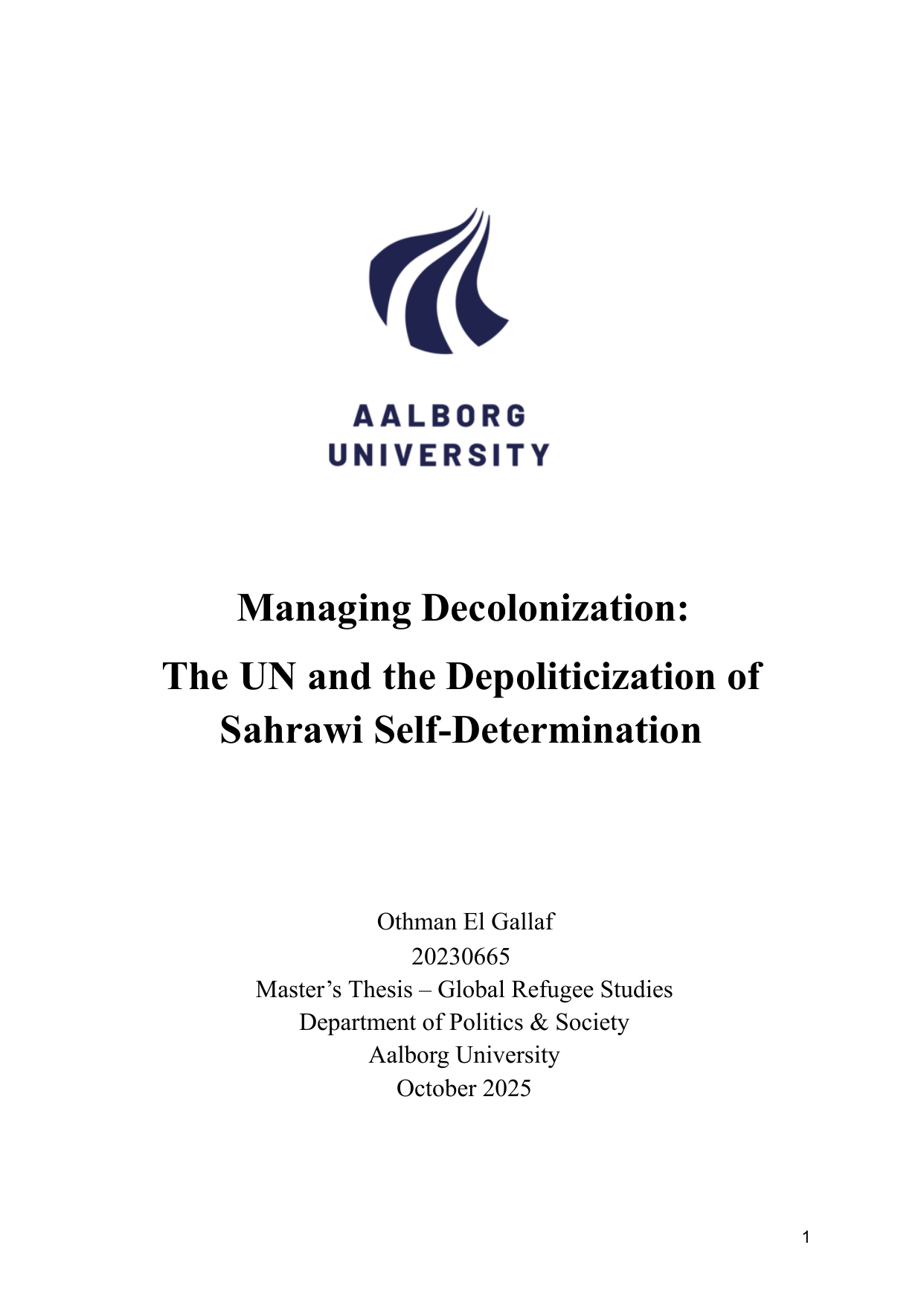
Managing Decolonization: The UN and the Depoliticization of Sahrawi Self-Determination
Author
Term
4. semester
Education
Publication year
2025
Submitted on
2025-10-15
Pages
91
Abstract
This study explores the motives and the motivations that led the United Nations to not deliver a self-determination vote in Western Sahara and how UN governance has shifted from decolonization to long-term conflict management. It asks: How has UN governance evolved since 1975, and what has this meant for Sahrawi self-determination? Using qualitative document analysis and critical discourse analysis, the study examines Security Council and General Assembly texts, Secretary-General reports, MINURSO materials, legal opinions, and selected NGOs reports, corporate records and trade data. Entman’s framing is used to code UN language over time.An integrated framework links material interests and institutions to discourse: Le Billon (resources), Chimni (global imperial state), Flinders & Buller and Stone (depoliticisation and governance), Entman (framing), and Fassin (humanitarian government and moral economy). Together, these lenses track how interests translate into procedures and, then, into the words that shape policy. Findings show a feedback loop. First, French and U.S. interests around Sahrawi resources align with informal Security Council practices, Group of Friends and Penholding, that narrow agenda space and filter strong decolonization language. Second, UN discourse shifts from framing Western Sahara as a colonial question to treating it as a technical management issue. Third, MINURSO’s practice follows suit, contracting from a referendum mission to ceasefire observation and humanitarian tasks. This loop stabilizes the status quo and delays self-determination. The thesis contributes a joined-up account connecting political economy, Council micro-routines, and discursive change. It suggests that repoliticization would require opening Council working methods, reconnecting MINURSO’s outputs to the referendum mandate, and re-centering decolonization language in UN texts.
Documents
